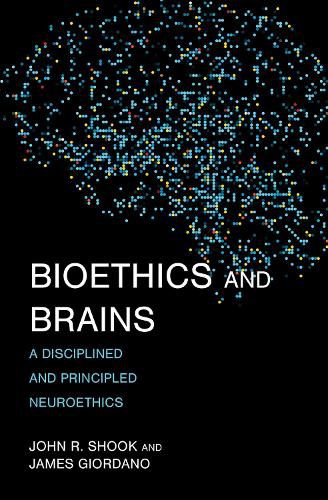Readings Newsletter
Become a Readings Member to make your shopping experience even easier.
Sign in or sign up for free!
You’re not far away from qualifying for FREE standard shipping within Australia
You’ve qualified for FREE standard shipping within Australia
The cart is loading…






How neuroethics can be increasingly relevant and informative for inclusive social policy and political discourse about brain science and technologies.
How neuroethics can be increasingly relevant and informative for inclusive social policy and political discourse about brain science and technologies.
Neuroethics, a field just over two decades old, addresses both ethical issues generated in and by brain sciences and the neuroscientific studies of moral and ethical thought and action. These foci are reciprocally interactive and prompt questions of how science and ethics can and should harmonize. In Bioethics and Brains, John R. Shook and James Giordano ask- How can the brain sciences inform ethics? And how might ethics guide the brain sciences and their real-world applications?
The authors' structure for a disciplined neuroethics reconciles science and ethics by requiring ethical principles consistent with moral neuroscience and moral psychology. Their cosmopolitan perspective looks beyond Western theories toward a new metaethics for neuroethics and illustrates its approach in chapters that address the issues and approaches to questions and problems generated by the proliferation of neurotechnology in global contexts. Shook and Giordano posit that neuroethics can merge science and ethics toward establishing global consensus on guiding brain research, neurotechnological innovation, and grounding neurorights.
$9.00 standard shipping within Australia
FREE standard shipping within Australia for orders over $100.00
Express & International shipping calculated at checkout
How neuroethics can be increasingly relevant and informative for inclusive social policy and political discourse about brain science and technologies.
How neuroethics can be increasingly relevant and informative for inclusive social policy and political discourse about brain science and technologies.
Neuroethics, a field just over two decades old, addresses both ethical issues generated in and by brain sciences and the neuroscientific studies of moral and ethical thought and action. These foci are reciprocally interactive and prompt questions of how science and ethics can and should harmonize. In Bioethics and Brains, John R. Shook and James Giordano ask- How can the brain sciences inform ethics? And how might ethics guide the brain sciences and their real-world applications?
The authors' structure for a disciplined neuroethics reconciles science and ethics by requiring ethical principles consistent with moral neuroscience and moral psychology. Their cosmopolitan perspective looks beyond Western theories toward a new metaethics for neuroethics and illustrates its approach in chapters that address the issues and approaches to questions and problems generated by the proliferation of neurotechnology in global contexts. Shook and Giordano posit that neuroethics can merge science and ethics toward establishing global consensus on guiding brain research, neurotechnological innovation, and grounding neurorights.